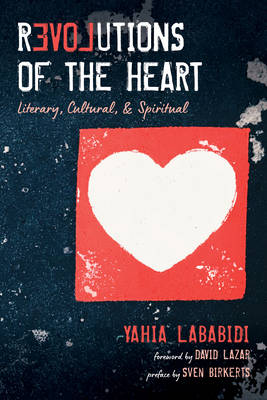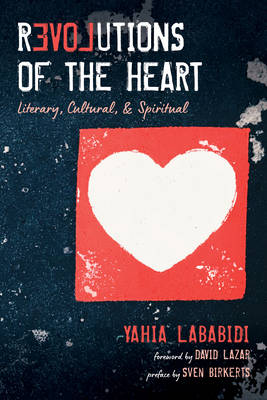
- Afhalen na 1 uur in een winkel met voorraad
- Gratis thuislevering in België vanaf € 30
- Ruim aanbod met 7 miljoen producten
- Afhalen na 1 uur in een winkel met voorraad
- Gratis thuislevering in België vanaf € 30
- Ruim aanbod met 7 miljoen producten
Zoeken
€ 40,45
+ 80 punten
Uitvoering
Omschrijving
Revolutions of the Heart is a genre-bending book where literature, social activism, and mysticism intersect. In this follow-up to Lababidi's first essay collection, Trial by Ink: From Nietzsche to Bellydancing (2010), the author is undergoing an inner change, as is the world around him. The multifaceted meditations in Revolutions--essays, poems, aphorisms, conversations, and even fiction--explore the edifying power of art, Islamophobia and its antidotes, the Egyptian Revolution and its aftermath, American popular culture, and much else in our complex modern world. A series of rich conversations with Lababidi, and his various provocative interlocutors, shed more intimate light on the subjects under discussion. At times serious, playful, and seriously playful, these exuberant exchanges chart the personal evolution of Lababidi from angst-ridden existentialist thinker, besotted with the life of the mind, to someone chastened, drawn to Sufism and seeking to surrender before the primacy of spiritual life. On a political level, as the work of an immigrant and Muslim (living in Trump's divided America and our wounded world), Revolutions is a book of hope and healing, arguing for nuance and compassion, as it attempts to present art as a form of cultural diplomacy and tool for transformation.
Specificaties
Betrokkenen
- Auteur(s):
- Uitgeverij:
Inhoud
- Aantal bladzijden:
- 270
- Taal:
- Engels
Eigenschappen
- Productcode (EAN):
- 9781725264946
- Verschijningsdatum:
- 31/03/2020
- Uitvoering:
- Paperback
- Formaat:
- Trade paperback (VS)
- Afmetingen:
- 152 mm x 229 mm
- Gewicht:
- 367 g

Alleen bij Standaard Boekhandel
+ 80 punten op je klantenkaart van Standaard Boekhandel
Beoordelingen
We publiceren alleen reviews die voldoen aan de voorwaarden voor reviews. Bekijk onze voorwaarden voor reviews.











